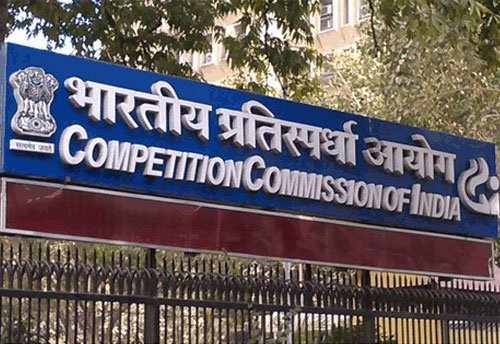This is the second article in a series exploring the interaction between statutes that provide mechanisms for dispute resolution and the Arbitration Act. In this series, we have already analyzed the interaction between the Electricity Act and the Arbitration Act, which can be accessed here. In this section, we will examine the impact of the Micro, Small and Medium Enterprises Development Act (MSMED Act) on the provisions of the Arbitration and Conciliation Act, 1996 (Arbitration Act).
Statutory Scheme
The MSMED Act, 2006 was introduced to address the shortcomings of the earlier Delayed Payments Act, 1993. While the previous Act mandated interest on delayed payments, it lacked an effective dispute resolution mechanism. The MSMED Act aims to provide a better framework for small and medium enterprises (SMEs) by ensuring timely payments, improving access to credit, and supporting business growth.
Sections 15 to 25 of the MSMED Act focus on delayed payments to micro and small enterprises. Section 15 sets a time limit for buyers to pay suppliers, while Section 16 imposes a penalty of compound interest on delayed payments, irrespective of any agreement between the buyer and supplier. Section 17 grants the supplier the right to receive payment with interest. Disputes arising from non-payment can be referred to the Facilitation Council under Section 18, which provides for conciliation and, if the conciliation fails ,the dispute is then taken up for arbitration, either by the Facilitation Council itself or by referring it to an institution providing Alternate Dispute Resolution (ADR) services.
The Arbitration Act, 1996, applies to the arbitration process followed by the council. Section 19 details the procedure for challenging awards or orders made by the Council in court. Lastly, Section 24 ensures that the provisions of Sections 15 to 23 override any conflicting laws.
It is clear from the above scheme that the council is empowered to conduct arbitration itself or refer the matter to any center or institution that provides arbitration services. Several questions arise and will be addressed throughout this discussion. Firstly, does the council’s jurisdiction to conduct arbitration preclude arbitration under an agreement entered into by the parties? In case of a conflict, which act will take precedence? Secondly, does the MSMED Act provide a mechanism to challenge an award rendered under it, or must such challenges follow the procedure prescribed under the Arbitration Act? If the latter is true, the subsequent question is which court would have jurisdiction to entertain an application under Section 34 of the Arbitration Act.
Whether MSMED Act Prevails Over Arbitration Act
This question came up for consideration before the Supreme Court in Gujarat State Civil Supplies Corporation Limited vs. Mahakali Foods Private Limited1 wherein the court after traversing the scheme of both the statutes observed that “the Arbitration Act, 1996 in general governs the law of Arbitration and Conciliation, whereas the MSMED Act, 2006 governs specific nature of disputes arising between specific categories of persons, to be resolved by following a specific process through a specific forum. Ergo, the MSMED Act, 2006 being a special law and Arbitration Act, 1996 being a general law, the provisions of MSMED Act would have precedence over or prevail over the Arbitration Act, 1996.”
It was held that “no party to a dispute covered under Section 17 of the MSMED Act, 2006 would be precluded from making a reference to the Facilitation Council under Section 18(1) thereof, merely because there is an arbitration agreement existing between the parties.”
However, the court also noted that the provisions of Arbitration Act would apply to the proceedings conducted by the Facilitation Council only after the process of conciliation initiated by the council under Section 18(2) fails and the council either itself takes up the dispute for arbitration or refers it to any institute or centre for such arbitration as contemplated under Section 18(3) of the MSMED Act, 2006.
Challenge To Award Passed By Facilitation Council
With the above discussion, it is very well clear that the council will have jurisdiction to adjudicate disputes arising between a supplier and a buyer with respect to overdue payments. Now, the next question is whether is there any provision in the MSMED Act itself under which an award passed by the council in pursuance of the arbitration proceedings can be challenged.
Section 19 of the MSMED Act, 2006 lays down the procedure for challenging an arbitral award made by the MSME Facilitation Council or any institution to which the Council refers a dispute. It requires the challenging party to deposit 75% of the award amount before the court can entertain the challenge. However, the MSMED Act does not define the term “court.” By reading Section 19 of the MSMED Act together with Section 34 of the Arbitration Act, it becomes clear that the term “court” refers to the one defined in Section 2(1)(e) of the Arbitration Act.
This means that while the MSMED Act governs the initial process of referring disputes to arbitration, the Arbitration Act governs the actual procedure of challenging the awards. The overriding effect given to Sections 15 to 23 of the MSMED Act under Section 24 does not extend to court challenges under Section 19.
The MSMED Act grants the MSME Facilitation Council the authority to conduct arbitration and conciliation proceedings under Section 18(4). However, it does not specify which courts have jurisdiction over challenges to awards or how such challenges should be made. Once the pre-deposit condition under Section 19 is met, the court defined under the Arbitration Act takes over. From that point, the challenge is resolved according to the Arbitration Act, specifically Section 34, and the MSMED Act no longer applies.
Agreement Between Parties Governs Jurisdiction Of Court Under Section 34
Having established that the court defined under the Arbitration Act has jurisdiction to entertain challenges against an award passed by the MSME Facilitation Council, the next issue requiring consideration is whether an agreement between the parties can confer exclusive jurisdiction to a court other than the one within whose territorial limits the supplier is located, and where the council passed the award.
This issue came up for consideration before the Gujarat High Court recently in Uttar Gujarat Vij Company Limited Versus Gupta Power Infrastructure Limited2 where it was argued that by virtue of the overriding effect of sub-section(4) of Section 18 read with Section 24 of the MSMED Act’ 2006, the juridical seat of arbitration proceedings has been fixed and it would result in exclusion of the jurisdiction of the Civil Court anywhere else in India where cause of action for adjudication of the dispute lies.
The court while rejecting the above submission held that “the parties once have agreed to submit to the jurisdiction of Court at Mehsana in respect of the disputes arising out of the agreement, one contracting party cannot be permitted to argue that since the arbitration proceedings had been conducted at Cuttack, Odisha because of the location of MSME Felicitation Council by virtue of Section 18(4) of the MSMED Act’ 2006, the Civil Court at Cuttack, Odisha will have exclusive jurisdiction to deal with the challenge to the arbitral award under Section 34 of the Arbitration Act’ 1996.”
Recently, the Bombay High Court in Gammon Engineers and Contractors Pvt. Ltd. Versus Rohit Sood3 grappled with the same issue where the court after extensively referring to the judicial authorities on the point and pursuing relevant provisions held that “the MSMED Act does not provide any mechanism for challenging the award passed under Section 18. The Arbitration Act takes over once an award is passed under Section 18 of the MSMED Act. Therefore, once the award is passed, the provisions of the Arbitration Act would govern for the purpose of challenging the award and ascertaining the Court before such an Application for setting aside the award is to be made.”
A similar issue was addressed by the Delhi High Court in the case of Indian Oil Corporation Limited vs. Fepl Engineering (P) Limited & Anr4. The court examined whether the jurisdiction to entertain a challenge to an award passed by the Micro and Small Enterprises Facilitation Council (MSEFC) lies with the court within whose territorial jurisdiction the council that issued the award is located or with the court agreed upon by the parties in their contractual agreement.
It was held that “jurisdiction of the MSME Council which is decided on the basis of the location of the supplier, would only determine the ‘VENUE’, and not the ‘SEAT’ of arbitration. The ‘SEAT’ of arbitration would continue to be governed in terms of the arbitration agreement between the parties to entertain the petition under Section 34 of the Act.”
The upshot of the above discussion is that it is not necessary for the jurisdiction of the court under Section 34 to be decided based on the location of the supplier or where the council passed the award, the parties can confer exclusive jurisdiction upon another court.
Conclusion
In this analysis, we have addressed important aspects of the interplay between the MSMED Act and the Arbitration Act. The MSMED Act supersedes the provisions of the Arbitration Act concerning the formation of the Arbitral Tribunal and establishes the facilitation council as the forum for adjudicating disputes between suppliers and buyers related to overdue payments. However, there was previously a lack of clarity regarding the appropriate forum for challenging an award.
The position is now settled. Once the council passes an award, the provisions of the Arbitration Act come into operation. Consequently, the jurisprudence developed under Section 34 of the Arbitration Act applies fully to awards passed by the council when challenged under this section. This means that if there is an agreement between the parties conferring jurisdiction on a specific court, the challenge must be filed in that court, rather than in the court having supervisory jurisdiction over the council that passed the award under Section 18 of the MSMED Act.
It is also clear from the judgments delivered by the Supreme Court that the MSMED Act, being a special statute addressing a specific category of disputes, overrides the provisions of the Arbitration Act.






